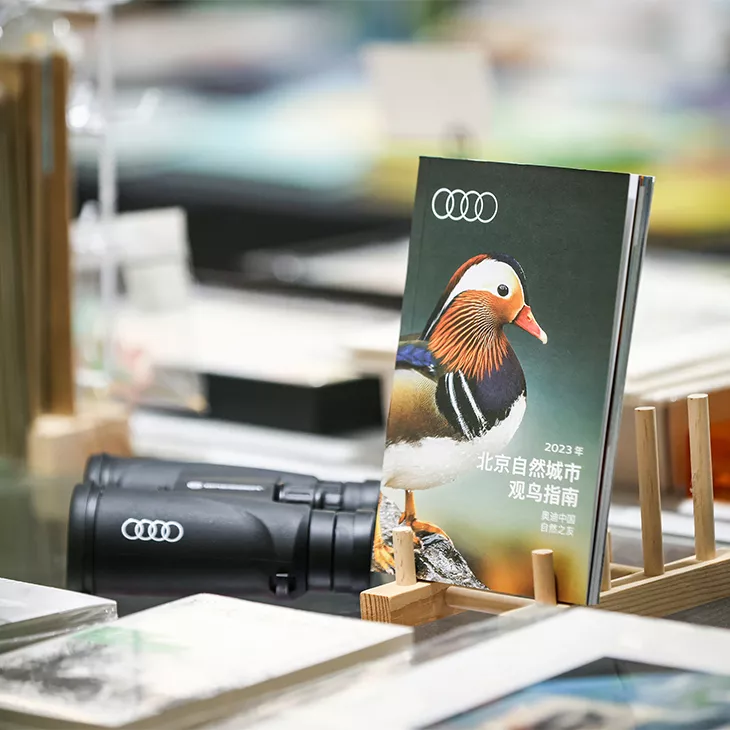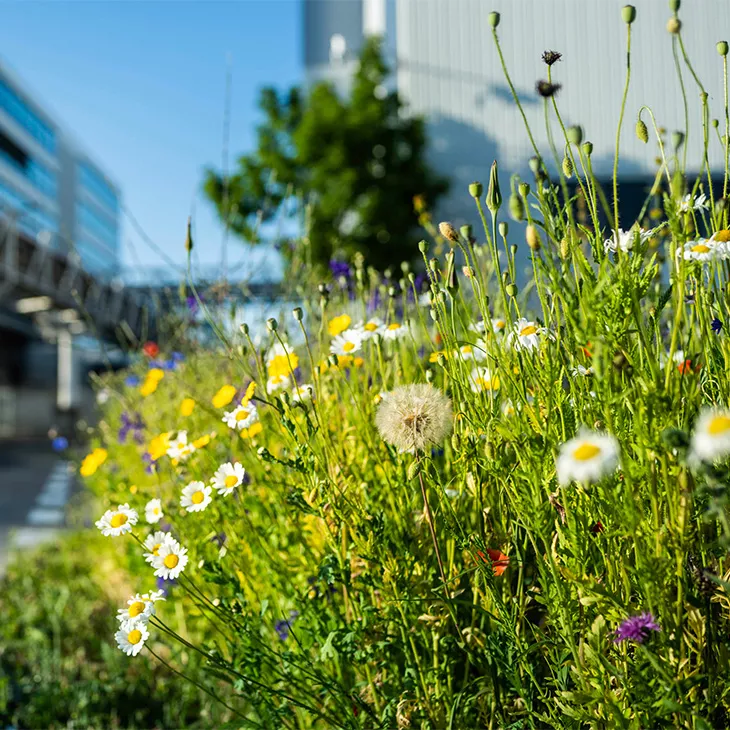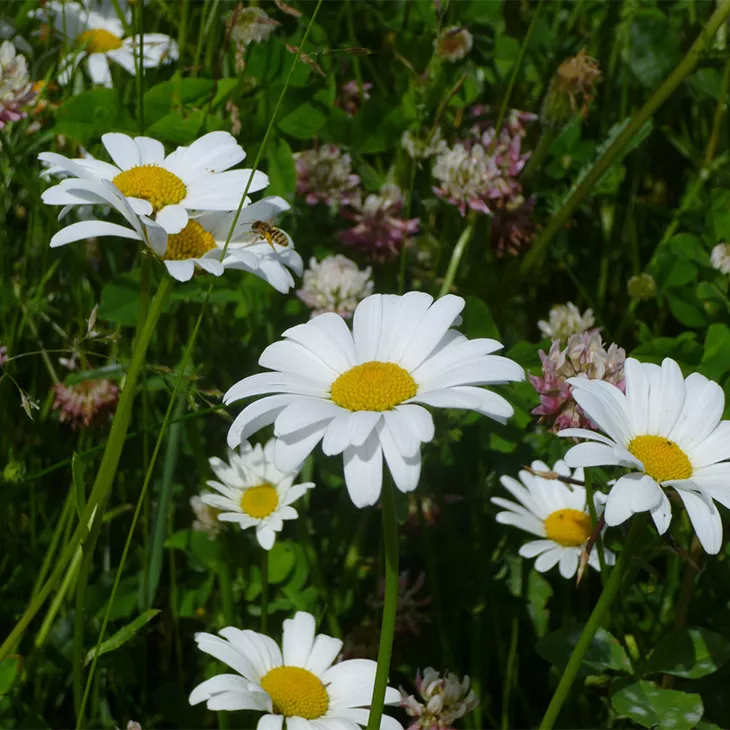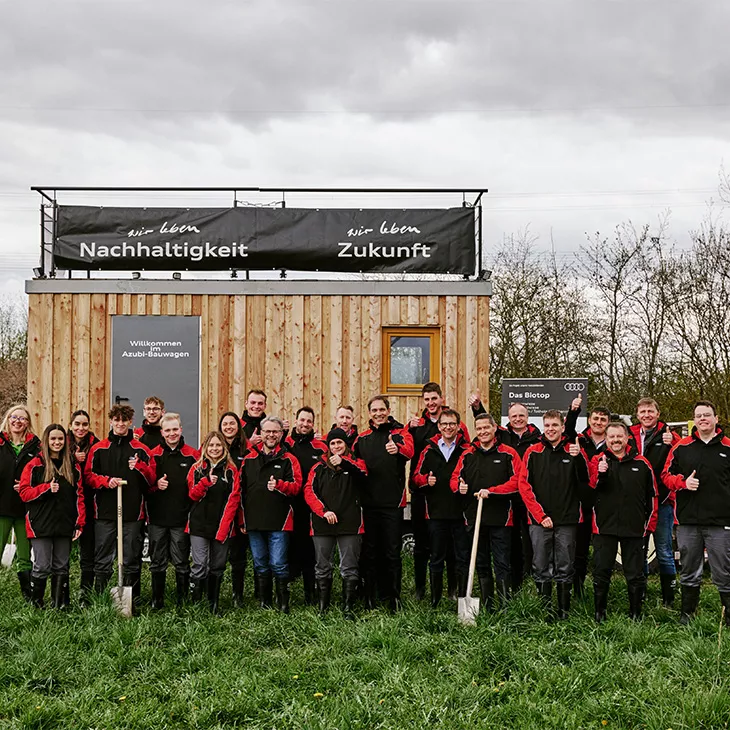Protecting biodiversity: projects at all Audi locations
• Mission:Zero environmental program treats biodiversity as key area of activity
• Audi employees take action to protect biodiversity
• Stepping stone biotopes, fruit trees, and flowering meadows – Audi’s activities encompass a variety of projects
In addition to decarbonization, resource efficiency, and water use, Audi’s cross-site environmental program Mission:Zero also focuses on biodiversity as one of its four key areas of activity. From fields of flowers and colonies of wild bees to reforestation projects: As a member of the “Biodiversity in Good Company” initiative, the brand with the four rings again took action in 2023 with a variety of projects to protect biodiversity at all Audi locations.
Along with climate change, loss of biodiversity is one of the most serious challenges of the twenty-first century. Against this backdrop, the United Nations has declared the decade from 2021 to 2030 a time for restoring the world’s ecosystems. Audi is aware of the responsibility the automotive industry has for protecting biodiversity and supports the UN’s biodiversity targets. In addition, the brand with the four rings has also signed the leadership statement put out by the “Biodiversity in Good Company” initiative, of which Audi is also a member.
Taking a strategic approach to protecting biodiversity, Audi has developed and, in 2023, further optimized a biodiversity index analogous to its decarbonization index. The index lets Audi use key figures to evaluate each location and define binding targets. This encompasses questions such as: Are buildings’ facades and roofs greened? How are the open areas landscaped? Are employees made aware of the issue, for example through training courses? This makes it possible for Audi to determine to which extent its sites promote biodiversity as well as to develop a strategy for improving the natural balance there and measure its success. “Every creature matters,” says Dr. Rüdiger Recknagel, Head of Environmental Protection at Audi. “Our commitment to biodiversity is expressed through many small-scale but crucial concepts and activities.”
In order to raise awareness for its many biodiversity projects among employees and visitors alike, the brand with the four rings has created a stepping stone biotope. The park enables species to migrate thanks to a network of individual biotopes such as trees, rough pasture, and wetlands. More of these stepping stones are in the works.
Neckarsulm: piles of stone as a habitat for amphibians
In Neckarsulm, Audi is using piles of stones and dead wood as a means to promote biodiversity. This method is simple but effective as it provides a habitat and source of food for a variety of organisms. To this end, natural stones were piled up. In addition, lumber cut last fall was stacked along the plant fence to create new habitats.
Finally, more than 30 native trees were planted and an amphibian spawning pond was restored at Böllinger Höfe in cooperation with the city of Heilbronn. The pond was sealed to prevent it from drying out as it had done regularly in the past. The site will serve as a habitat and spawning ground for toads and newts, both species of amphibians that move between water and land. The Neckarsulm trainees helped create a habitat for sand lizards at Böllinger Höfe.
Győr: protecting the endangered saker falcon
At the site in Győr, the year 2023 was all about transforming green space management. A new mowing plan was developed to increase the number of infrequently mowed or entirely unmowed areas. This approach gives the plants that flower there more opportunities to produce and disperse seeds. In the long term, this will turn previously homogeneous lawns into meadows full of flowers. In addition, Audi employees planted a 100-square-meter herb and spice garden with more than 500 native or adaptable medicinal plants, spices, and aromatic plants.
In an effort to protect the saker falcon, which is critically endangered in Hungary, trainees used leftover materials to build nesting boxes, which they donated to a conservation organization. What’s more, the Audi employees also helped renovate the information boards and damaged benches on a nature walk through a protected oak forest near the site.
San José Chiapa: reforestation and native fauna
In cooperation with the city of Nopalucan in the Mexican state of Puebla, Audi México has launched an ambitious reforestation project. In Santa Cruz del Bosque, a forested area near the Audi site in San José Chiapa, 42,900 trees will eventually be planted on 39 hectares. Due to a bark beetle infestation, the forest in Santa Cruz del Bosque had suffered grave damage. The forest ecosystem provides a crucial habitat for flora and fauna in the region. It helps to maintain the ecological balance and improve air quality, as well as providing a space for recreation and leisure activities for the people who live there.
In addition, the Audi site in the Mexican city of San José Chiapa is also taking action to conserve local fauna. The first step was to analyze the fauna on and around the plant site in collaboration with Universidad Veracruzana. The goal is to identify the diversity of species already present and define measures to protect them.



